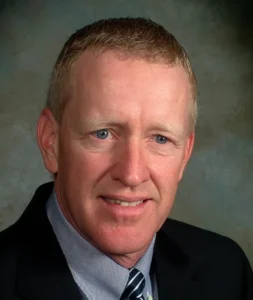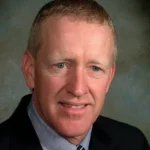When “progressive” means doing things the way your grandparents did.
Back to the Farm

Jeff Polet
Jeffrey Polet grew up in an immigrant household in the immigrant town of Holland MI. After twenty years of academic wandering he returned to Holland and now teaches political science at Hope College, where he also grudgingly serves as chair of the department, having unsuccessfully evaded all requests.
In the interim, he continues to nurture quirky beliefs: Division III basketball is both athletically and morally superior to Division I; the Hope/Calvin rivalry is the greatest in sports; the lecture is still the best form of classroom instruction; never buy a car with less than 100,000 miles on it; putts will still lip out in heaven; bears are the incarnation of evil; Athens actually has something to do with Jerusalem; and Tombstone is a cinematic classic.
His academic work has mirrored his peripatetic career. Originally trained at the Catholic University of America in German philosophy and hermeneutical theory, he has since gravitated to American Political Thought. He still occasionally writes about European thinkers such as Michel Foucault or the great Max Weber, but mostly is interested in the relationship between theological reflection and political formation in the American context. In the process of working on a book on John Marshall for The Johns Hopkins University Press, he became more sensitive to the ways in which centralized decision-making undid local communities and autonomy. He has also written on figures such as William James and the unjustly neglected Swedish novelist Paer Lagerkvist.
A knee injury and arthritis eliminated daily basketball playing, and he now spends his excess energy annoying his saintly wife and their three children, two of whom are off to college. Expressions of sympathy for the one who remains can be posted in the comments section. He doesn’t care too much for movies, but thinks opera is indeed the Gesamtkuntswerk, that the music of Gustav Mahler is as close as human beings get to expressing the ineffable, that God listens to Mozart in his spare time, and that Bach is history’s greatest genius.
More to Consider
- Truck Farm
These two intrepid fellows are out to prove that good food can be grown almost anywhere. This creative garden suggests that growing at least some food is not…
- Hedge Farm
"[I]n February, Thomas Hoenig, the president of the Federal Reserve Bank of Kansas City, warned against the violent possibilities of a farmland bubble, telling the Senate Agriculture Committee…
- Save Detroit. Start a Farm.
Detroit is a mess. The auto industry is collapsing. Crime is rampant. Anyone who could get out has left. Buildings are vacant. Large tracts of land, once formerly…


